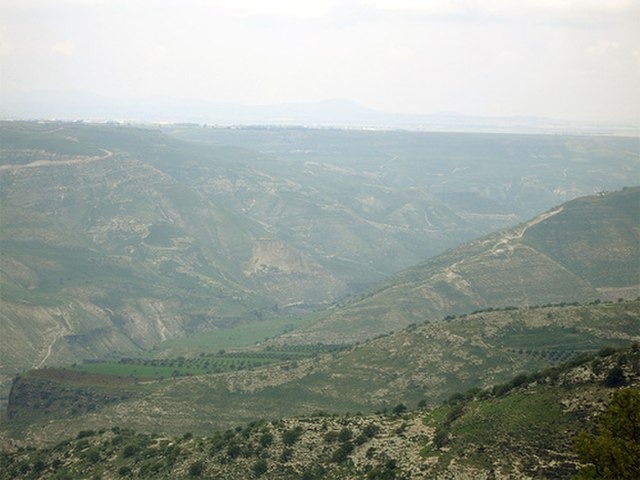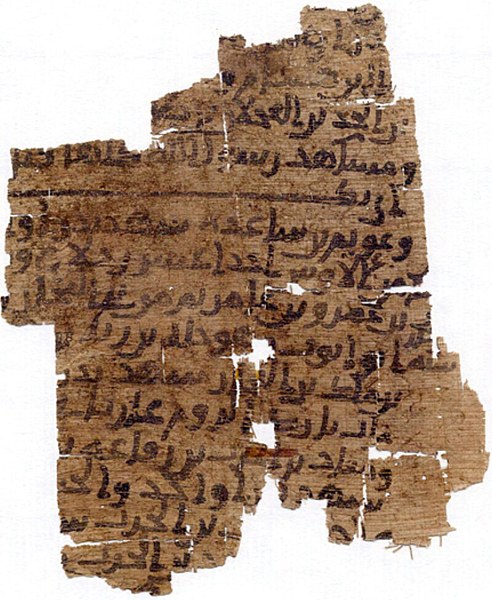Khalid ibn al-Walid ibn al-Mughira al-Makhzumi was a 7th-century Arab military commander. He initially headed campaigns against Muhammad on behalf of the Quraysh. He later became a Muslim and spent the remainder of his career in service to Muhammad and the first two Rashidun caliphs: Abu Bakr and Umar. Khalid played the leading command roles in the Ridda Wars against rebel tribes in Arabia in 632–633, the initial campaigns in Sasanian Iraq in 633–634, and the conquest of Byzantine Syria in 634–638.
Mount Uhud (pictured in 2009) where the battle took place
The oasis town of Dumat al-Jandal (pictured in 2007). Khalid led an expedition against the city in 630, and may have led another expedition in 633 or 634, though modern historians have cast doubt about the latter campaign or Khalid's role in it.
The ravines of the Yarmouk River, in the vicinity of the Battle of Yarmouk
Illustration of the Battle of Yarmouk by an anonymous Catalan illustrator (c. 1310–1325).
Muhammad was an Arab religious, social, and political leader and the founder of Islam. According to Islamic doctrine, he was a prophet divinely inspired to preach and confirm the monotheistic teachings of Adam, Abraham, Moses, Jesus, and other prophets. He is believed to be the Seal of the Prophets within Islam, with the Quran as well as his teachings and practices forming the basis for Islamic religious belief.
"Muhammad, the Messenger of God" inscribed on the gates of the Prophet's Mosque in Medina
Two folios of the Birmingham Quran manuscript, an early manuscript written in Hijazi script likely dated within Muhammad's lifetime between c. 568–645
An early manuscript of Ibn Hisham's al-Sirah al-Nabawiyyah, believed to have been transmitted by his students shortly after his death in 833
An early manuscript of the Muwatta of Malik ibn Anas, dated within his lifetime in c. 780








